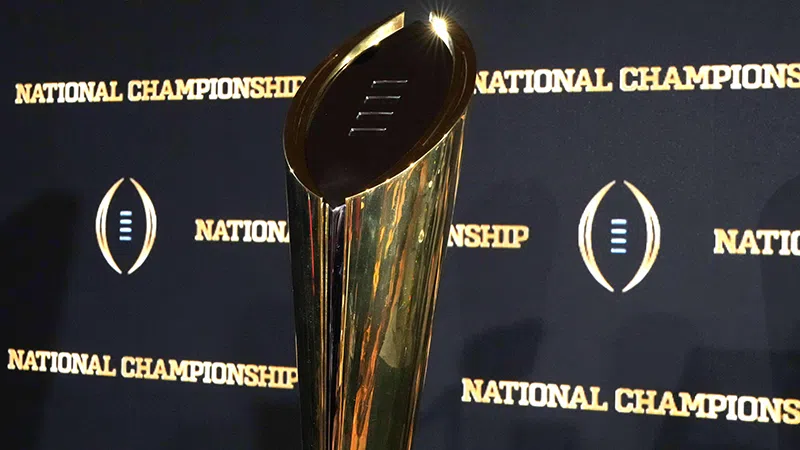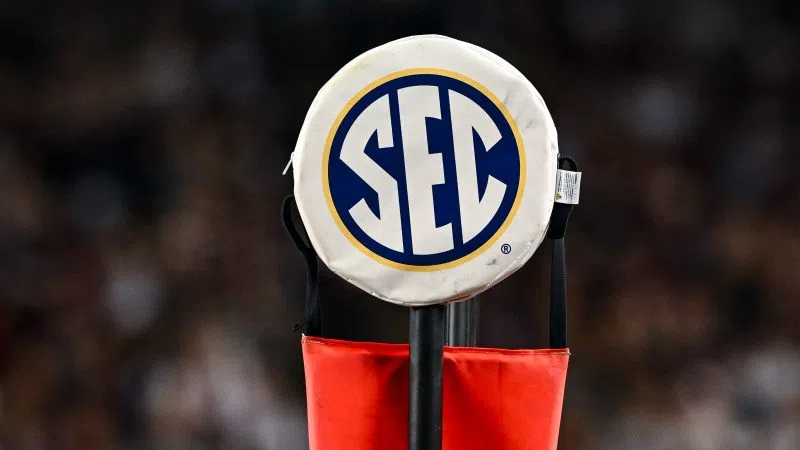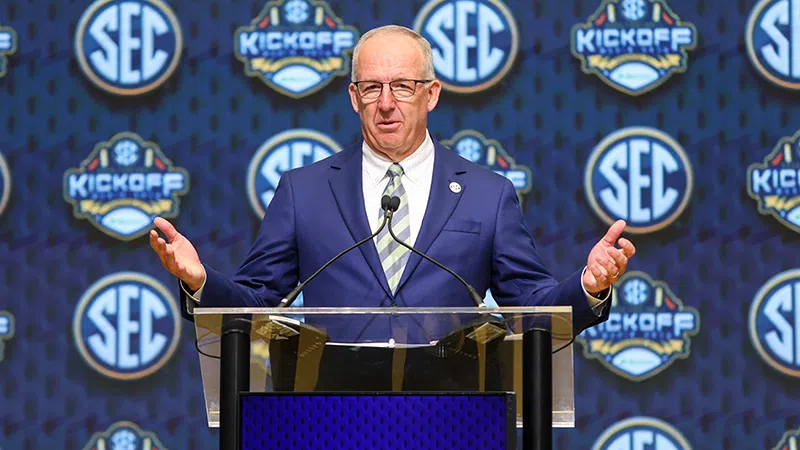
Kirby Lee-Imagn Images
By Chris Marler
It looks like the complaining worked. Or at least that is the assumption in regards to the SEC and its future involvement with the College Football Playoff.
On Wednesday morning the CFP announced that they would be changing the criteria of the selection and assessment process of the 12 teams that make the field. The changes will focus on the strength of each team’s schedule and how they perform against it.
“The current schedule strength metric has been adjusted to apply greater weight to games against strong opponents,” the College Football Playoff release stated. “An additional metric, record strength, has been added to the selection committee’s analysis to go beyond a team’s schedule strength to assess how a team performed against that schedule. This metric rewards teams defeating high-quality opponents while minimizing the penalty for losing to such a team. Conversely, these changes will provide minimal reward for defeating a lower quality opponent while imposing a greater penalty for losing to such a team.”
The initial reaction from media and pundits around the country is that the changes are indirectly addressing the biggest complaint from last year’s 12 team playoff – strength of schedule. The committee’s dismissive stance on schedule strength and ranked opponents last year sparked SEC frustration, as three 9-3 teams were excluded from the Playoff.
The anger turned into rage for some when seeing teams like 11-1 Indiana and 11-2 SMU get at-large bids without a single win over a ranked team and a strength of schedule ranked 65th and 75th, respectively. Boise State landed the Group of 5 spot as a No. 3 seed, despite owning the nation’s 86th-ranked schedule and just one win over a ranked opponent.
The outrage was as palpable as it was valid. However, the assumption that this is a cure all, cover up, or just a do over to make sure three loss teams from the two most powerful conferences get in, is misguided.
In the words of Lee Corso, not so fast my friend.
“This metric rewards teams defeating high-quality opponents while minimizing the penalty for losing to such a team. Conversely, these changes will provide minimal reward for defeating a lower quality opponent while imposing a greater penalty for losing to such a team.”
Not to add salt in the wound for Alabama and Ole Miss, but only one of those three loss teams from a year ago would check boxes with the new criteria, and that’s South Carolina.
Sure, both Ole Miss and Alabama beat Georgia last season, and each handled South Carolina. But the idea of “harsher penalties for losing to a weaker team” doesn’t exactly inspire confidence for the rest of the field. Alabama lost to two 6-6 teams last season, including one where they put up their lowest point total in well over a decade. Ole Miss lost at home to 4-8 Kentucky.
The new criteria changes may very well benefit the SEC, but don’t bank on it. After all, most people around this conference and region assumed the 12 team playoff all but guaranteed at least four SEC teams in the postseason every year for the foreseeable future.
That arrogance was checked immediately. Year one of the 12 team playoff delivered a reminder that nothing is guaranteed in this sport, not even for the SEC.

More SEC News











